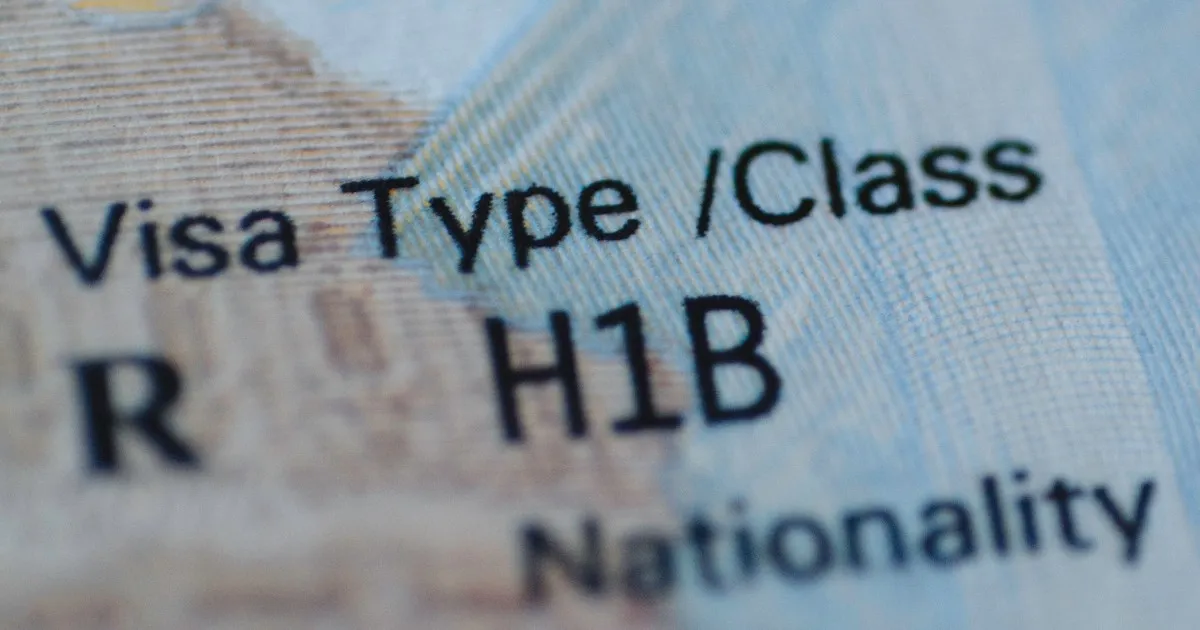
In a significant move, the Trump administration has announced a new $100,000 fee on H-1B visas and proposed an overhaul of the visa’s lottery selection process. This initiative aims to prioritize higher-paid and higher-skilled foreign employees, reigniting the debate over the use of foreign labor by U.S. employers.
The proposal, which follows President Donald Trump's announcement on Friday, mandates that companies seeking to apply for new H-1B visas after September 21 must pay the hefty fee. This policy is particularly noteworthy as the H-1B visa program is widely utilized by major tech companies and outsourcing firms to recruit foreign talent.
On Tuesday, the administration introduced a “weighted selection process” for H-1B visa allocation. This change would come into play when the annual demand for H-1B visas exceeds the 85,000 limit established by Congress—a situation that has occurred annually for over a decade. The proposed rule, to be published in the Federal Register, seeks to replace the current random lottery system with a system that assigns prospective employees to four wage bands. Those in the highest wage category would have their applications entered into the selection pool four times, while those in the lowest wage category would be entered just once.
The Department of Homeland Security asserts that this new weighted system will better align with the original intent of the H-1B visa program, which is to attract high-skilled workers, while also encouraging employers to offer higher wages for these positions. The proposed changes aim to disincentivize the program's use for filling lower-paid or lower-skilled roles, although it would still allow for hiring at all wage levels.
Xiao Wang, CEO of Boundless Immigration, commented that the dual policies send “a strong signal of the direction that the administration wants to go.” If adopted, these changes would particularly benefit companies aiming to retain foreign workers with specialized skills who have studied in the U.S. The focus on higher-skilled workers is evident, as the program would disproportionately favor those earning higher wages.
Trump expressed the need for changes in the visa system, stating that the H-1B program was originally designed to bring in temporary workers with high-skilled functions. However, he claimed it has been exploited to replace American workers with lower-paid labor. Recent statistics reveal that approximately 339,000 people applied for the last H-1B lottery round, with only 120,141 applications selected.
The proposed changes may significantly impact companies looking to hire lower-wage workers from countries like India and China, especially in the tech sector, where about 60% of H-1B visa approvals are for computer-related jobs. Furthermore, startups and smaller firms that cannot afford to pay above-average salaries may find it challenging to compete with larger tech companies.
Deedy Das, a partner at Menlo Ventures, voiced concerns that the latest proposal could harm many tech companies, particularly startups. He remarked that while it may benefit IT consulting firms, it could pose significant challenges for smaller enterprises. As the news of the $100,000 fee spread, it sparked a frenzy among current visa holders, employers, and countries worldwide striving to understand the implications of the announcement.
Despite the clarity from the White House that the fee is a one-time charge for new applicants, the proposed changes are likely to face legal challenges. Critics from both sides of the political spectrum argue that an over-reliance on the H-1B visa program has put U.S.-born workers at a disadvantage. Commerce Secretary Howard Lutnick described the H-1B program as a “scam,” while the Economic Policy Institute highlighted that major companies relying heavily on H-1B visas, such as Amazon and Meta, have also conducted sizable layoffs.
As the administration reviews public comments on the proposal over the next 30 days, the future of the H-1B visa program hangs in the balance, with potential ramifications for the U.S. labor market and the tech industry.